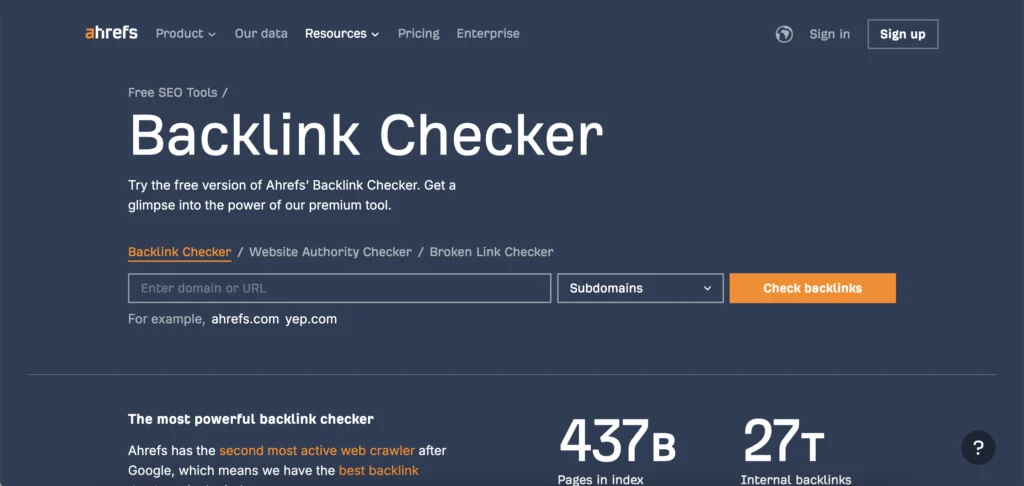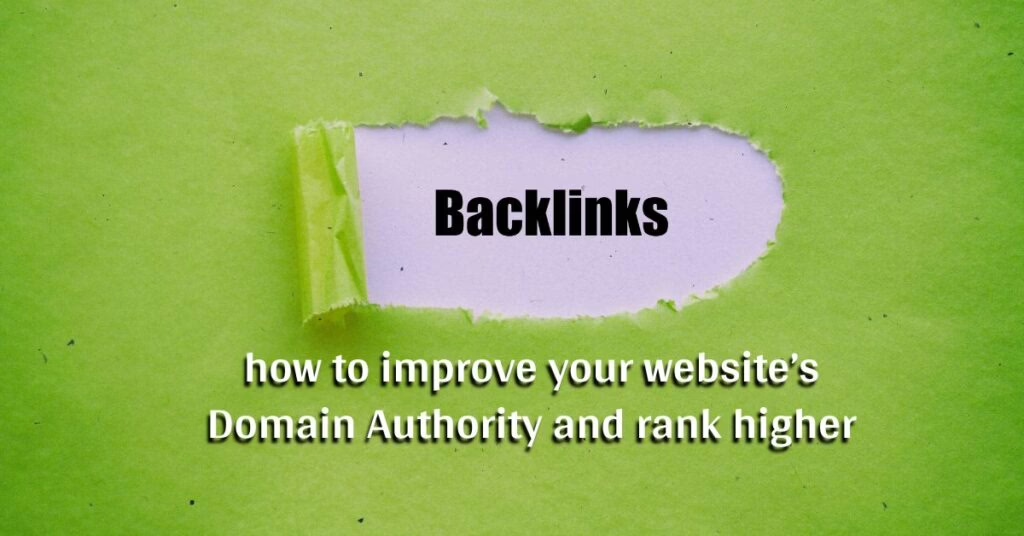If you’re searching for a comprehensive guide on “What is Domain Authority (DA) and how to increase it?”, you’ve come to the right place. In this article, we’ll dive deep into the concept of Domain Authority, its importance, and actionable steps to boost it. Whether you’re a beginner or an experienced blogger, this guide will help you understand how to improve your website’s Domain Authority and rank higher on search engines like Google.
What is Domain Authority?
Domain Authority (DA) is a metric developed by Moz that predicts how well a website will rank on search engine result pages (SERPs). The DA score ranges from 1 to 100, with higher scores indicating a stronger ability to rank.
Although Google does not use DA as a ranking factor, a higher DA score generally correlates with better rankings because it reflects the site’s authority, trustworthiness, and backlink profile.
How is Domain Authority Calculated?
Moz calculates DA based on multiple factors, including:
- Backlinks: The number and quality of backlinks pointing to your website.
- MozRank & MozTrust: The quality of linking sites.
- Root Domains: The number of unique root domains linking to your site.
- Content Quality: High-quality, original, and informative content.
- Website Performance & User Experience.
Why is Domain Authority Important?
With millions of blogs and websites being created daily, search engines like Google face the challenge of determining which content deserves to rank higher. Domain Authority helps in this process by evaluating the overall quality and trustworthiness of a website.
A higher DA means:
- Better chances of ranking on the first page of Google.
- Increased trust from users and other websites.
- More opportunities for earning backlinks.
How is Domain Authority Calculated?
Moz calculates DA based on multiple factors, including:
- Backlinks: The number and quality of backlinks pointing to your website.
- MozRank & MozTrust: The quality of linking sites.
- Root Domains: The number of unique root domains linking to your site.
- Content Quality: High-quality, original, and informative content.
- Website Performance & User Experience.
How to Check Domain Authority?
You can check your DA score using tools like:

Steps to Check DA Using Moz:
- Visit Moz’s DA Checker.
- Enter your website URL.
- Click on “Analyze” to see your DA score and other metrics.
Domain Authority vs. Page Authority
While Domain Authority measures the strength of an entire domain, Page Authority (PA) focuses on the ranking potential of individual pages. Both metrics are crucial for SEO success.
| Aspect | Domain Authority (DA) | Page Authority (PA) |
|---|---|---|
| Scope | Entire website/domain | Individual page |
| Focus | Overall domain strength | Strength of a specific page |
| Backlinks | Links pointing to the entire domain | Links pointing to a specific page |
| Importance | Indicates domain credibility | Indicates page-level credibility |
How to Increase Domain Authority?
Here are 10 powerful and effective strategies to improve your Domain Authority, strengthen your website’s credibility, and enhance its search engine ranking potential:
1. Choose a Good Domain Name
- If you are starting a new website, choose a short, memorable, and niche-related domain.
- Use .com, .org, or .net extensions for better credibility.
2. Write High-Quality SEO-Optimized Content
- Create content that is informative, well-researched, and engaging.
- Use proper keywords, headings, and meta tags. Read our Keyword Research Guide here
- Keep your content fresh and updated regularly.
3. Improve Internal Linking
- Link to your own articles and pages to distribute link juice.
- Helps in better indexing and navigation for users and search engines.
4. Get High-Quality Backlinks
- Earn backlinks from reputable and high DA websites.
- Focus on guest blogging, digital PR, and broken link building.
- Avoid spammy or low-quality backlinks.
5. Optimize Page Speed
- A fast-loading website improves user experience and SEO.
- Use CDN, compress images, and optimize CSS/JS files.
6. Improve Mobile-Friendliness
- Ensure your website is fully responsive and mobile-friendly.
- Use Google’s Mobile-Friendly Test tool.
7. Boost Social Signals
- Share your content on social media platforms like Facebook, Twitter, and LinkedIn.
- Encourage users to share and engage with your content.
8. Focus on Technical SEO
- Fix broken links, optimize robots.txt, and create an XML sitemap.
- Use schema markup to enhance search visibility.
9. Reduce Bounce Rate & Improve User Experience
- Use engaging multimedia like images, videos, and infographics.
- Write clear and concise content with proper formatting.
10. Regularly Monitor DA and Adjust Strategies
- Track your DA progress using Moz, Ahrefs, or SEMrush.
- Analyze your competitors’ DA and adapt best practices.
Frequently Asked Questions (FAQs)
0-30: Low (new or low-quality sites).
30-50: Average (most small to medium-sized blogs).
50-70: Good (established, authoritative sites).
70+: Excellent (top-tier websites like Forbes or Wikipedia).
Increasing DA is a long-term process. It can take 6 months to a year to see significant improvements, depending on your efforts in content creation, backlink building, and technical SEO.
New websites usually start with DA 1-10. Building high DA requires quality backlinks, content, and SEO.
While DA is not a direct Google ranking factor, it correlates with metrics that Google considers, such as backlinks and content quality.
Backlinks are a major factor in DA, but you can still improve it by:
Publishing high-quality content.
Optimizing on-page SEO.
Improving site speed and user experience.
DA (Domain Authority): A metric by Moz.
DR (Domain Rating): A metric by Ahrefs. Both measure domain strength but use different algorithms.
Yes, if you lose backlinks, reduce content updates, or have poor SEO practices, DA can drop.
Conclusion
Domain Authority is an essential metric for assessing a website’s ranking potential. While it takes time and effort to increase DA, following the strategies outlined in this guide—such as creating SEO-optimized content, building backlinks, and improving site speed—will set you on the right path. By implementing strong SEO strategies, high-quality content, and effective link-building techniques, you can significantly improve your DA score and overall search engine rankings.
Remember, content is king. Focus on delivering value to your audience, and your Domain Authority will naturally grow over time. Start working on your DA today and monitor your progress regularly for long-term SEO success! If you have any questions or need further assistance, feel free to leave a comment below!



